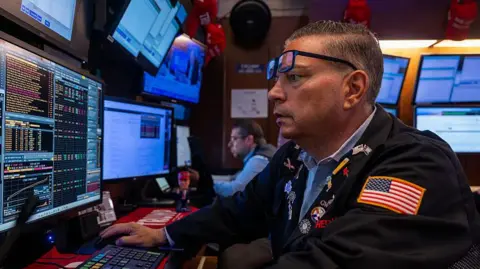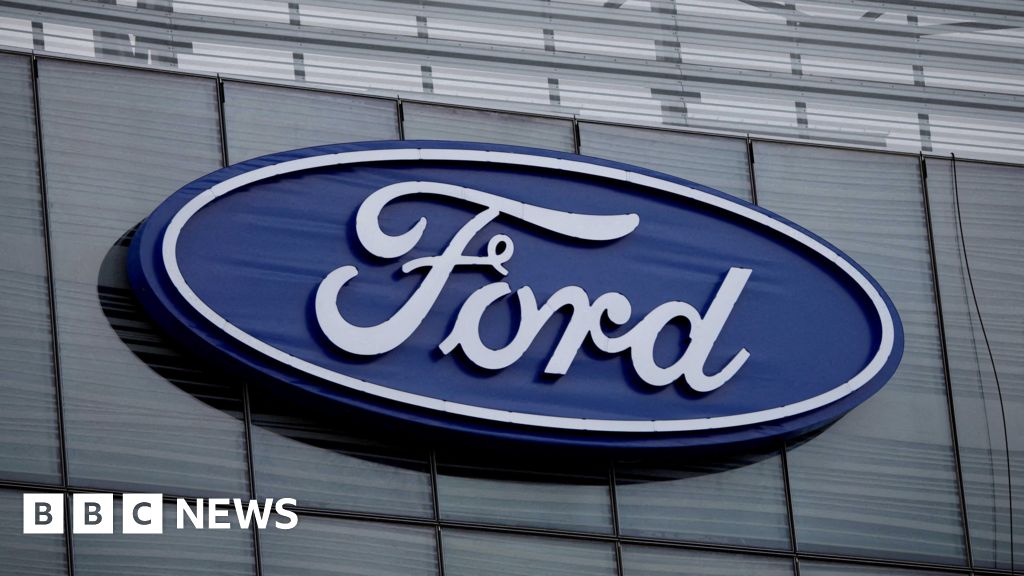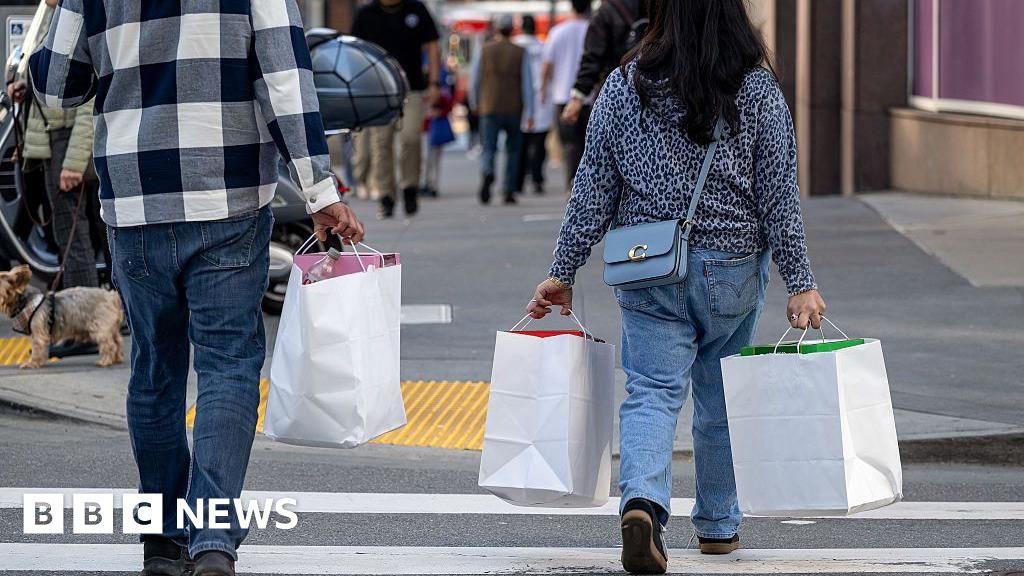
 Getty Images
Getty Images
US President Donald Trump said he would fire the head of the agency charged with publishing some of America's most closely watched economic data, after a weaker-than-expected jobs report stoked further alarm about his tariff policies.
His decision to move forward with plans to sharply raise tariffs on goods from countries around the world had already sent financial markets in the US shuddering.
In the US, the three major indexes dropped, with the S&P falling 1.9% by mid-afternoon.
That followed earlier sell-offs in Europe and Asia, as investors dumped shares of firms such as South Korean steel manufacturers and German truck-maker Daimler.
Trump's plans leave most goods coming into the US facing new taxes of 10% to 50%, depending on their origin, and will lift tariff rates in the US to the highest levels in nearly a century.
Trump says the measures will rebalance global trade and boost US manufacturing.
But analysts say they will raise prices for businesses and consumers in the US and weigh on the US and global economies, as sales, hiring and investment slow.
This week has revived fears about economic damage, as companies update investors on their costs and new data points to slowdown in the US.
Employers in the US added just 73,000 jobs in July, according the monthly Labor Department report published on Friday.
It also dramatically revised estimates of job growth in May and June, with far fewer gains than previously thought.
"The economic data since the Liberation Day announcements did not reflect that sharp deterioration in economic activity, or at least not in obvious ways. This was the week that changed," analysts at Wells Fargo wrote on Friday.
The revisions appeared to spur Trump to fire the commissioner of labor statistics, Erika McEntarfer, in a post on social media.
"We need accurate Jobs Numbers. I have directed my Team to fire this Biden Political Appointee, IMMEDIATELY," he wrote on social media, referring to the large revisions to the May and June jobs numbers.
Trump also lashed out at Federal Reserve chairman Jerome Powell, whom he has angrily criticised in recent months.
Shares in the US opened lower in the morning, with losses accelerating over the course of the afternoon.
France's CAC 40 closed down 2.9%, while German's DAX fell 2.6%. In the UK, the FTSE fell 0.7%.
Earlier the leading index in South Korea fell 3.8%, the Hang Seng index in Hong Kong dropped 1% and Japan's Nikkei fell 0.6%.
When Trump first put forward his plans in April, shares in the US tumbled more than 10% in a week, the concerns spreading to the dollar and bond markets.
The stock market recovered after he suspended some of the most drastic measures, leaving in place a less punishing, more expected 10% levy. In recent weeks, indexes in the US have been trading around all-time highs.
"The reality is Trump got emboldened by the fact that markets came right back," Michael Gayed, portfolio manager for The Free Markets ETF told the BBC's Opening Bell. "Now he's going to try his luck again."
The latest measures are less extreme than what Trump first put forward in April, when goods from key players in southeast Asia, such as Vietnam, were facing tariff rates of more than 40% and a tit-for-tat exchange with China drove US tariffs on its exports surge to at least 145%.
But the tariffs still make for a radical change for the US, for decades a champion of free trade.
The plans include a minimum 10% tax on most goods entering the US, with major trade partners, including the European Union, Japan, South Korea, Vietnam face tariffs in the range of 15% to 20%.
Goods from China are set to facing new 30% levies, while exports from some other countries, including Switzerland and Laos face even higher duties.
The changes, which are set to go into effect on 7 August, will lift the average tariff rate to roughly 18%, up from less than 2.5% as recently as January.
Investors had been taking the impact of tariffs in stride, sending shares in the US and elsewhere to new highs in recent weeks.
Mr Gayed said markets had become less sensitive to Trump's rapidly changing trade policies, but he saw risks ahead.
"The more he just whips around policy, the more the markets will not care, but as the old saying goes, nothing matters 'til it matters and then it's the only thing that matters," he said.

 6 months ago
11
6 months ago
11









